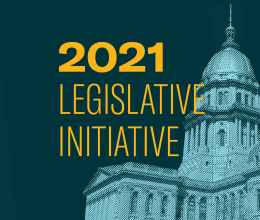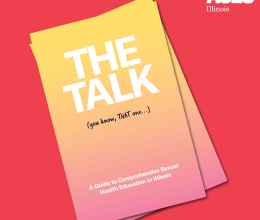
Comprehensive sexual health education in schools equips students with the age-appropriate and inclusive tools they need to be safeand to support responsible decision-making about their well-being. Sex Ed gives students the information and skills they need to make healthy decisions at every point in their lives, for the rest of their lives.
The ACLU of Illinois has worked for many years with legislators, advocates, educators, students, parents, and guardians to update and expand the sex ed laws in Illinois.
Do all public schools in Illinois teach sex ed?
No. Sexual Health Education is not mandatory in Illinois public schools. Currently, Illinois uses an “if, then model” which means that if a school district chooses to teach sex ed they need to follow certain standards and guidelines which are set under Illinois law.
Reports, from the Illinois State Board of Education, indicate that currently far less than half of all public school districts in Illinois teach sexual health education.While the Board of Education collects this information there is no public reporting system to know exactly what each school is teaching when it comes to sex ed. If you would like to check if your local school is teaching sex ed, look for information about any curriculum on the school district’s website, or contact them directly to ask.
What is expected of schools that teach sex ed?
Illinois’ current sex ed law was an initiative of the ACLU of Illinois and numerous coalition partners. Under the current law, if a public or charter school teaches sex ed, it must follow the guidelines set by the Keeping Youth Safe and Healthy Act (KYSHA).
Under KYSHA there is not a set sex ed curriculum, each district has the ability to create and set their own curriculum based on the National Sex Education Standards. This includes personal health and safety standards for grades K-5, and comprehensive sexual health education standards in grades 6-12. These standards aim to give young people the information and tools they need to be safe and support responsible and informed decision-making about their health and well-being throughout their lives.
Among the topics to be covered under these standards include:
- Consent and Healthy Relationships
- Anatomy and Physiology
- Puberty and Adolescent Sexual Development
- Gender Identity and Expression
- Sexual Orientation and Identity
- Sexual Health, and
- Interpersonal Violence
KYSHA also requires that materials used in Illinois classrooms to be:
- Age and developmentally appropriate
- Medically accurate
- Complete
- Culturally appropriate
- Inclusive, and
- Trauma-informed
The law ensures that comprehensive personal health and safety and sexual health education in Illinois is affirming of identities, including those who historically have been stigmatized or excluded such as LGBTQIA and pregnant or parenting youth.
Can students be opted out of sex ed in school?
Yes, parents and guardians can opt their student(s) out from some or all of the lessons under KYSHA without any disciplinary or academic consequences.
Under KYSHA school districts should be posting on their website information on what curriculum and materials they are using, as well as provide the opportunity for the instructional materials to be reviewed as requested.
Compliance Guide
We’ve put together a guide to help administrators, teachers, and others who want to learn how schools and districts can ensure compliance for sex education in their schools.
GUIDE TO COMPREHENSIVE SEX ED IN ILLINOIS
If you have any questions about guide, or would like to request a training on KYSHA, please reach out to advocacy@aclu-il.org.
Resources for Students
The Talk was created and designed by students, with support from the ACLU of Illinois, to provide information and tools to support sexual health and personal safety. This resource, intended for young people in 6th through 12th grade, also provides guidance on how to advocate for inclusive, comprehensive sex education in Illinois schools.
